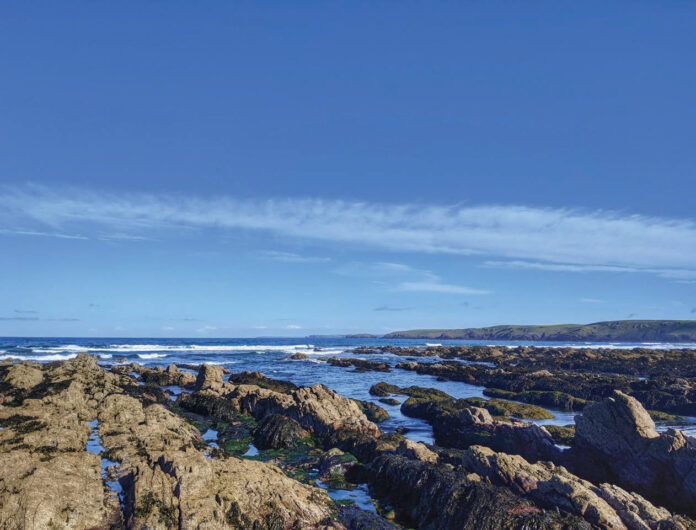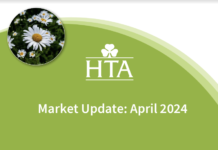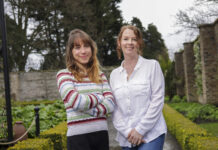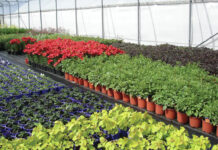In this article, Karen O’Hanlon describes the numerous trials, using seaweed as a crop biostimulant, taking place across Ireland
A number of natural marine products found off the coast of Ireland have a role to play in plant and soil health.
Seaweed
Seaweed (Ascophyllum nodosum and Laminaria digitata) has multiple benefits in terms of land management.
● The better-known attributes of seaweed are as a biocontrol and biofertiliser in helping to improve roots, nutrition and the quality of crops by supplying vitamins and minerals whilst also producing phytohormones that act as biostimulants to encourage immunity to disease, healthy growth and colour.
● Seaweed can absorb as much CO2 as trees and hence can contribute to CO2 sequestration. Carbon sequestration is the process by which CO2 is removed from the
atmosphere and held in solid or liquid form; Plants can absorb CO2 during growth and store
it in different tissues. The most important tissue for In this article, Karen O’Hanlon describes the numerous trials, using seaweed as a crop biostimulant, taking place across Ireland carbon sequestration is the root. Good organic practices encourage healthy soil-root interactions with the accumulation of microbial life around the root.
● Many biofertilisers on the market encourage such symbiosis between soil life and root. Seaweed as a foliar spray activates the plants own growth and protection systems to produce plant growth regulators, phytohormones, to protect from diseases and biomolecules to counteract drought, heat and frost. Numerous progressive wholesale horticulture growers in Ireland are using seaweed as a biostimulant (Seaweed is currently
classified as a biostimulant and does not need to be registered as a plant protection product) at a 1:200 dilution during watering and enriching further with microbial mixes (including Bacillus subtilis and Pseudomonas fluorescence) to control root issues such as Rhizoctonia and Fusarium.
Chitin is found in the skeletons of crabs and can act as a food source for chitinase-producing organisms. Once chitin is ingested and the population of chitinolytic producing microbes increase in the soil, this results in a cascade of biological benefits including an increase in lytic enzymes which control the level of pathogenic nematodes in the soil, thus contributing to the integrated pest management of insect and nematode pests in the crop.
Fish emulsion is an organic garden fertiliser made from whole fish or parts of fish. It provides a NPK ratio of 4-1-1 and is most often used as foliar feed to provide a quick nitrogen boost.
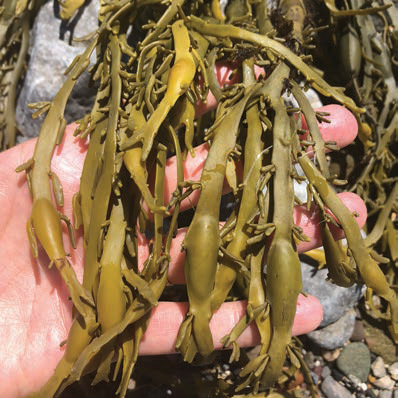
SeaMeGro, a seaweed company based in Connemara which is registered with the Irish Organic Association, is carrying out crop trials across Ireland in 2021, most notably
on hemp, barley, wheat and forestry. Crop results will be available by Autumn 2021 and these trials will be used as efficacy data for fertiliser approval across the EU. SeaMeGro purchase seaweed directly from the Connemara area thus helping to support local incomes for those with long established fishing rights. SeaMeGro also has a hatchery in Co. Kerry where they continue to research and grow different seaweed species such as Asparagopsis as an animal feed for reducing methane emissions.
Seaweed Trials Underway 2021
There are numerous and diverse crop trials underway across the country utilising seaweed as a biostimulant.
Coillte are carrying out forestry trials using a mixture of seaweed, plant growth promoting bacteria and fungi. The trees receive intensive fertilisation at the nursery stage and are then transplanted onto sites for the establishment phase. In the past, on certain sites, the first three years of growth involved the application of chemical fertiliser. For this trial, Coillte are applying the seaweed, bacteria and fungi mixes, to the root, a day before planters move them to the site for planting. The trees will no longer receive chemical
fertilisation. The seaweed and microbial mix should offer some resistance to weevil infestation, and result in higher establishment rates, healthier trees, cost reductions for
Coillte and an important move towards further enhancing the sustainable practices of the custodians of our forests.
Hemp Trials are underway by Daniel Lyons and Laura Jane Foley in Wild Atlantic Hemp in County Clare. The hemp growing business is heavily regulated and growers are always looking to reduce their chemical inputs. Current typical inputs in hemp production range from 80-120Kg nitrogen per hectare. The humid climate in Ireland tends to favour disease development, which can result in significant yield losses for hemp growers. Leaf spots, southern blight and corn earworm have been the most destructive pest and disease problems over the past several seasons. There have also been other disease issues, for example, with hemp rust, powdery mildew, Fusarium, Rhizoctonia, Sclerotiorum and
Phytium. Nematode damage from flea beetle (Phyllotreta nemorum) is also prevalent in hemp. Seeds are sprayed with a microbial mix and seaweed in pots before transplanting to the field. The hemp then receives two more sprays of seaweed in the field.
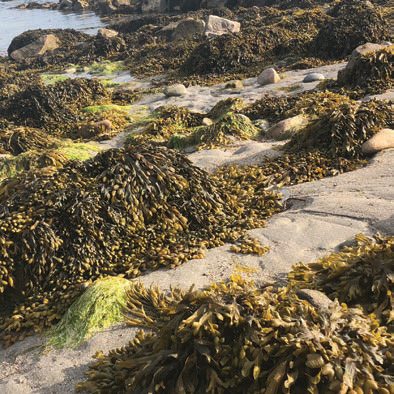

Barley trials for beer production are underway with Maurice Deasy, Canvas Brewery in Tipperary, Jim Galvin in Tralee plus barley and wheat trials with Seed Technology in Waterford. Spring barley is the most grown tillage crop in Ireland. Thanks to Ireland’s warm and humid climate, Irish producers are capable of achieving some of the highest grain yields in the world. In an ever-changing world, both financially and environmentally, grain growers are being challenged to produce greater yields that are more profitable but also more environmentally sustainable. These trials are exploring the addition of biostimulants to improve crop yields and decrease fungicide dependency. Three bacterial cultures were added as a seed dressing and crops will be sprayed with seaweed 3 times during the seed development stage. The benefits of these treatments will be evaluated under a number of headings including yield, grain quality, protein content, disease resistance and plant and grain counts.
Grassland trials are being undertaken with Enda Buckley, Carbery Group Limited in County Cork. This farm is proactively seeking to become a zero emissions farm. The use of biochar, and biostimulants such as microbes and seaweed are being explored as alternatives to the chemical fertilisers traditionally used in farming practices.
Airfield Gardens head grower Colm O’Driscoll is also carrying out growing trials with seaweed and microbes on a range of crops. Progress on these trials are updated regularly on the following blog www.airfield.ie/stories_news/ regenerative-soil-practices. ✽
  DR. KAREN O’HANLON works with SeaMeGro Ltd. developing a full range of seaweed based pesticide-free products for use in agriculture, she is also founder of Probio Carbon Ltd. Contact: kohanlon@seamegro.com Telephone: 087-9816569 |



